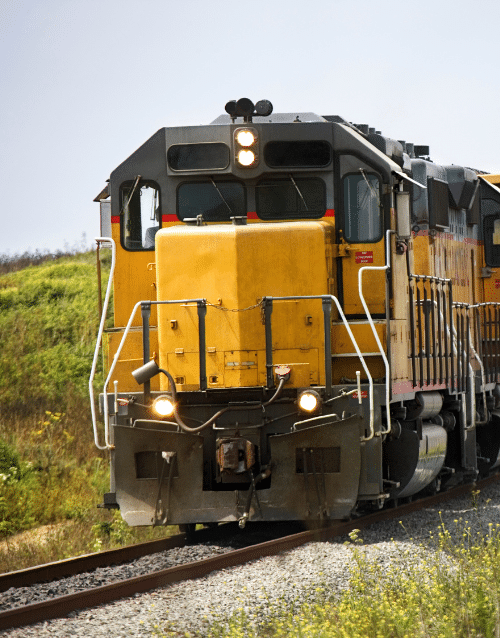The Locomotive Inspection Act
The Locomotive Inspection Act was passed in the early 1900s to protect railroad workers and the public. Its provisions require railroad companies to keep locomotives and parts in good working order. It also requires regular inspections and reporting. If you were hurt due to a Locomotive Inspection Act violation, partner with an experienced railroad accident lawyer from Cooper Hurley Injury Lawyers for help.
KEY TAKEAWAYS
- Federal laws like the Locomotive Inspection Act ensure railroad safety through standards for maintenance and inspection.
- The Locomotive Inspection Act requires railroads to maintain locomotives and parts safely, with non-compliance leading to penalties and legal liability for accidents.
- Railroad workers injured due to the Locomotive Inspection Act violations can seek compensation under FELA, which differs from standard workers’ compensation.
- In FELA claims, demonstrating a Locomotive Inspection Act violation may eliminate the need to prove employer negligence for injury compensation.
- Cooper Hurley Injury Lawyers specializes in FELA claims, offering comprehensive legal services on a contingency fee basis for railroad accident cases.
Federal laws governing railroads date back more than 100 years. They cover safety, equipment maintenance, inspection, and other areas. If your employer failed to adhere to federal standards and you were injured in a railroad accident as a result, it is possible to seek legal compensation.
The Locomotive Inspection Act dictates how railroads maintain locomotives and parts. If you were hurt due to a violation, an attorney from Cooper Hurley Injury Lawyers can help you pursue compensation from your employer.
What Is the Locomotive Inspection Act?
Federal lawmakers understood early on that working on locomotives is dangerous. They also recognized that railroad accidents are a public safety concern and that regulation is necessary.
Railroad safety in the United States is partly governed by the Locomotive Inspection Act, or LIA. It is also known as The Boiler Inspection Act, which was its name when it was first passed in 1911.
LIA requires that railroads keep their locomotives and all parts in proper working order. They must not pose an unnecessary danger to personal safety when in use. Locomotives are also subject to inspection, repair, and reporting requirements under LIA.
Failure to comply with LIA can result in civil penalties that may be assessed for each day a defect is in place. Defective locomotives that cause injuries leave the railroad company open to lawsuits from those injured and the families of those killed.
Someone who knowingly and willfully falsifies LIA-required reports or records faces criminal penalties.
Examples of Prohibited Locomotive Defects
All locomotive parts and appurtenances are covered under the LIA. An appurtenance is something attached to the locomotive, whether or not federal regulations require it. Examples of LIA violations include:
- Slip and fall hazards
- Faulty brakes
- Diesel exhaust inside locomotive cabs
- Asbestos hazards
- Foreign substances on running boards or catwalks
- Defective cabin lighting
- Cracks, breaks, and excessive wear to any part or structural component
If you were hurt in a railroad accident, contact Cooper Hurley Injury Law. Our railroad accident lawyers have the resources and the legal skills to help you get the records you need and show the locomotive was defective.
How Locomotive Inspection Act Violations May Impact Your Case
Rail workers often travel between states for work. This necessitated a federal law even though rail workers are not federal employees. The Federal Employers Liability Act, or FELA, protects railroad workers who have experienced work-related injuries, including those caused by LIA violations.
Generally, rail workers must file FELA claims rather than go through the state workers’ compensation system. One significant difference between the programs is that workers’ compensation is a no-fault system. Employees injured on the job file claims and collect from their employer’s workers’ compensation insurance company. But workers covered by FELA file lawsuits against their employers to collect damages for their injuries. The company can then choose to settle rather than go to court.
Also, the compensation available under FELA is more comprehensive. Under workers’ compensation, you can collect lost wages and medical expenses. A FELA claim is more similar to a negligence-based personal injury lawsuit. It allows you to collect compensation for medical bills, lost income and future earnings, pain, suffering, and more.
The LIA and Negligence in FELA Claims
FELA claims generally depend on showing negligence on the part of the railroad. However, if your attorney can show that a defect violating the Locomotive Inspection Act caused your injuries, the company may be held responsible without proof of negligence. This is an important distinction. Evidence of an LIA violation makes it easier to prove your case and collect compensation so you and your family recover and move on.
In addition to helping determine if an LIA-covered defect caused your injuries, an accomplished FELA attorney from Cooper Hurley Injury Lawyers will also help with other parts of the FELA process, such as:
- Filing your claim
- Sharing information with the other party to help build your case in the discovery process
- Negotiating with the other party to try and reach a fair settlement and avoid going to court
- Handling a jury trial and fighting on your behalf if the other party won’t settle fairly
If you’ve been injured in a railroad accident, you need skilled attorneys on your side who understand applicable state and federal laws. The experienced team at Cooper Hurley Injury Lawyers will investigate your case and help you pursue just and fair compensation.
Trust in the FELA Lawyers at Cooper Hurley Injury Lawyers
Partnering with Cooper Hurley Injury Lawyers means you benefit from our combined 120+ years of experience across our seasoned legal team. We never represent insurance companies, though we are very familiar with their tactics to reduce or deny the value of your claim.
Our attorneys have been recognized by numerous professional organizations and publications, including:
- Super Lawyers
- Top 100 Trial Lawyers
- Lawyers of Distinction
- Top Lawyers by Coastal Virginia Magazine
- Million Dollar Advocates Forum
Our founding partner, John Cooper, is a leading railroad attorney with a long history of helping people with FELA claims against Amtrak, Norfolk Southern, and CSX. He is an Academy of Rail Labor Attorneys member and has chaired the FELA Litigation Group. He also chaired the Railroad Law Section of the American Association for Justice, the largest plaintiffs’ attorney organization in the U.S.
Our case results include obtaining millions of dollars secured for our clients. We have a history of successful FELA claims, including helping a client recover $303,000 after a Norfolk Southern rail yard accident. Our team specializes in FELA cases and understands what it takes to win.
Additionally, we have created a comprehensive resource guide for railroad workers and a free e-book on railroad injury rights.
Schedule Your Free Consultation With Our Railroad Accident Lawyers Today
If you or a loved one were injured in a railroad accident, get your free consultation now. When you partner with Cooper Hurley Injury Lawyers, we will use our extensive resources and deep legal expertise to build a strong case on your behalf. Because we work on a contingency fee basis, you pay nothing unless we win your case.
Find Out What Your
Case is Worth
Testimonials





